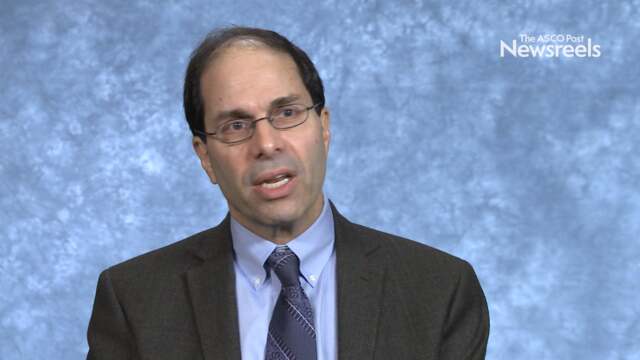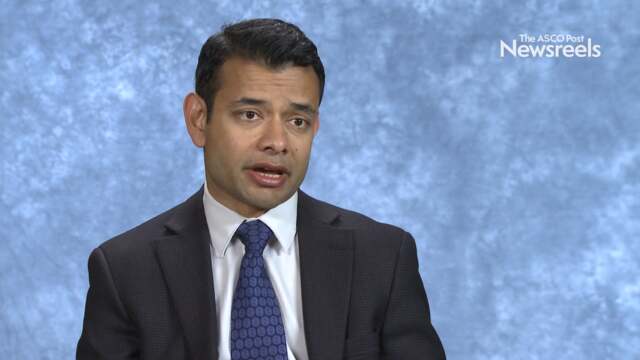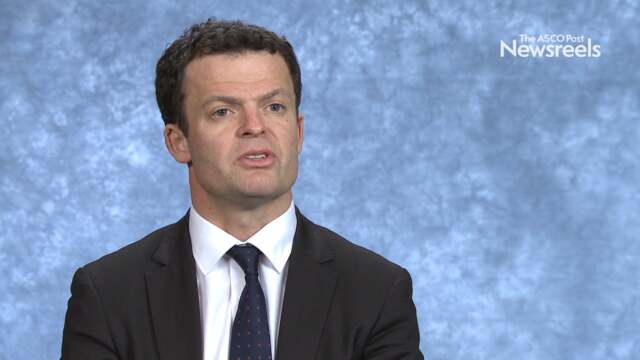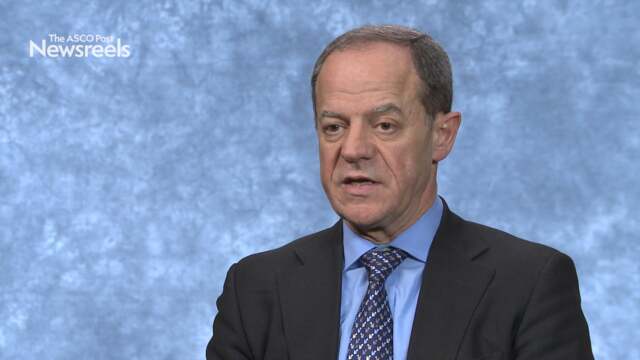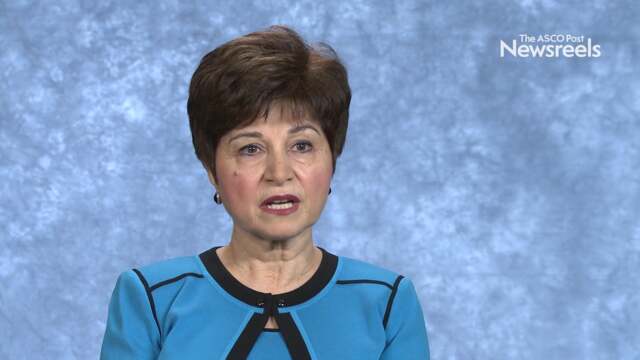Jeffrey M. Holzbeierlein, MD, on Penile, Urethral, and Testicular Cancers: Abstract Roundup
2018 Genitourinary Cancers Symposium
Jeffrey M. Holzbeierlein, MD, of the University of Kansas Medical Center, summarizes key abstracts on long-term sexual function in germ cell tumor survivors, sentinel node biopsy in clinical stage I testicular cancer, the impact of Medicaid expansion on diagnosis and management of patients with testicular cancer, and comparative genomic profiling of refractory/metastatic penile and nonpenile cutaneous squamous cell carcinoma (Abstracts 549-552).
Eric J. Small, MD, of the University of California, San Francisco, discusses phase III findings on apalutamide vs placebo in patients with nonmetastatic castration-resistant prostate cancer (Abstract 161).
Sumanta K. Pal, MD, of the City of Hope Comprehensive Cancer Center, discusses phase III study findings from IMmotion151, which looked at atezolizumab plus bevacizumab vs sunitinib in untreated metastatic renal cell carcinoma (RCC), and results from a safety and efficacy trial of axitinib in combination with pembrolizumab with advanced RCC (Abstracts 578 & 579).
Thomas Powles, MD, of Barts Cancer Institute, discusses phase III study findings on atezolizumab vs chemotherapy in platinum-treated locally advanced or metastatic urothelial carcinoma, with an emphasis on immune biomarkers, tumor mutational burden, and clinical outcomes (Abstract 409).
Joaquim Bellmunt, MD, PhD, of the Dana-Farber Cancer Institute, discusses phase III 2-year follow-up findings on pembrolizumab vs investigator’s choice (paclitaxel, docetaxel, or vinflunine) in recurrent, advanced urothelial cancer (Abstract 410).
Maha Hussain, MD, of Northwestern University, discusses phase III findings on enzalutamide in men with nonmetastatic castration-resistant prostate cancer (Abstract 3).
